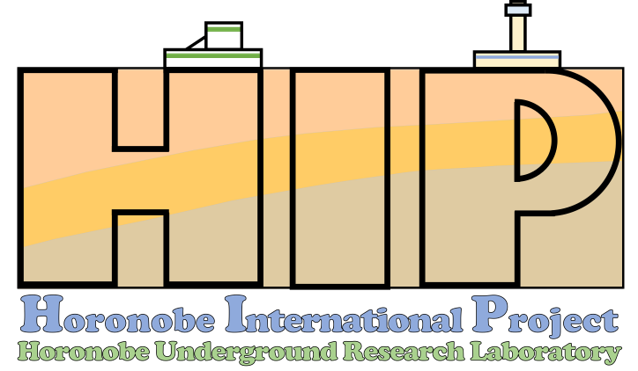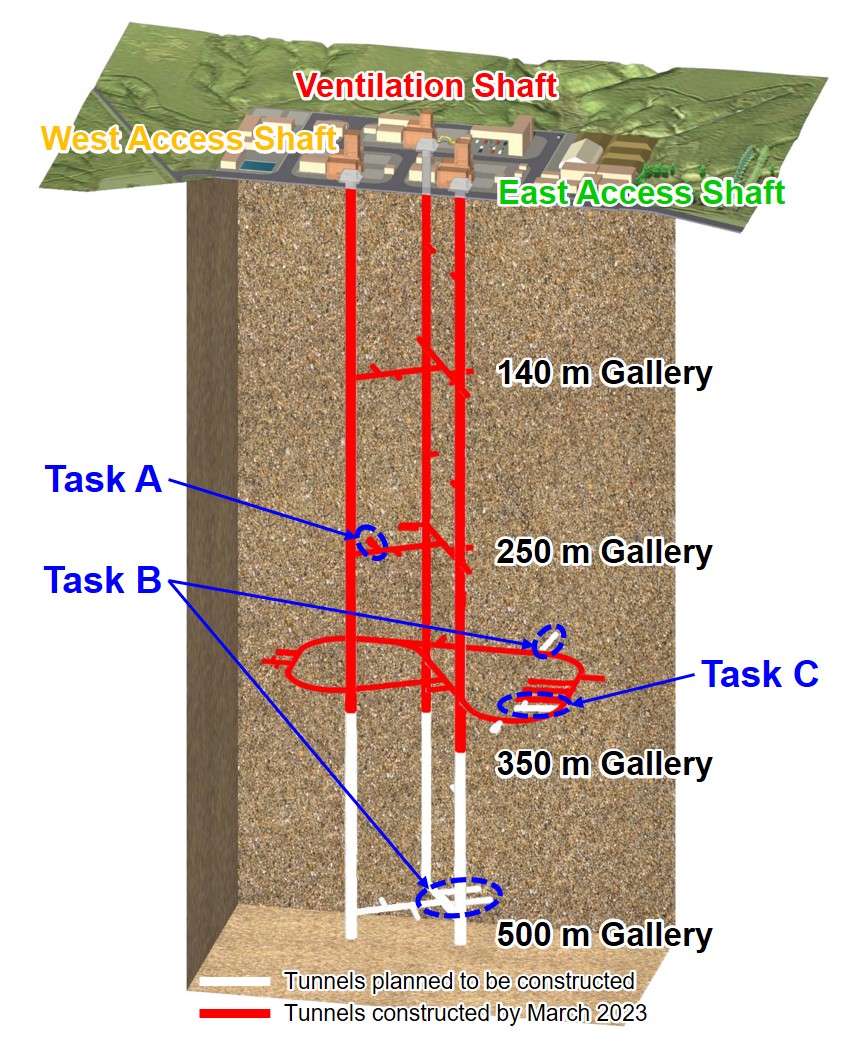Overview
The Horonobe International Project (HIP)
The Horonobe International Project (HIP) is an international project, as part of the Horonobe Underground Research Laboratory (URL) Project, with the main theme of 'Challenges for Developing Advanced Technologies and Human Resources Towards Long-Term Implementation of Geological Disposal'. The HIP was set up in February 2023 as an NEA* joint project with the participation of currently 11 organisations from Australia, Bulgaria, Germany, Korea, Romania, Taiwan and United Kingdom as well as Japan.

The main objectives of the HIP are to:
- Develop and demonstrate advanced technologies to be used in repository design, operation and closure, and a realistic safety assessment in deep geological disposal; and
- Encourage and train the next generation of engineers and researchers by sharing and transferring a vast amount of knowledge and experience developed to date in relevant organisations worldwide.
In the HIP, our priority should be given to promoting multilateral collaboration on the following three tasks as these are of great interest to many organisations worldwide as recognised during the International Roundtable discussions on the final disposal of high-level radioactive waste and spent nuclear fuel in 2019 and 2020**:
- Task A : Solute transport experiment with model testing;
- Task B : Systematic integration of repository technology options; and
- Task C : Full-scale EBS dismantling experiment.
*NEA: OECD Nuclear Energy Agency (https://www.oecd-nea.org/)
**A summary report is available on the NEA website:
https://www.oecd-nea.org/jcms/pl_39718/international-roundtable-on-the-final-disposal-of-high-level-radioactive-waste-and-spent-fuel-summary-report

Background
In the International Roundtable discussions, it was very much agreed that enhancing international cooperation would be of great importance to maintain and strengthen technological capabilities for the final disposal. Looking towards the long-term effective implementation of a geological disposal project from an international perspective, the technical understanding for the project should be further strengthened by, for example, transforming research and development (R&D) results into practical and reliable technologies and managing temporal uncertainties associated with long-term predictive modelling. To this end, international cooperation utilising URLs made internationally available should be facilitated as sharing financial and human resources as well as transferring R&D knowledge and experience to the next generation of engineers and researchers would be of much value and benefit.
News
- 6 March 2024
- The second Management Board meeting was held online.
- 18-19 December 2023
- An on-site Task A meeting was held at the Horonobe URL between the Nuclear Waste Management Organization of Japan (NUMO, Japan) and JAEA.
- 15 November 2023
- The first interim Management Board meeting was held online.
- 1-2 November 2023
- An on-site Task B meeting was held at the Horonobe URL between the Nuclear Waste Management Organization of Japan (NUMO, Japan) and JAEA.
